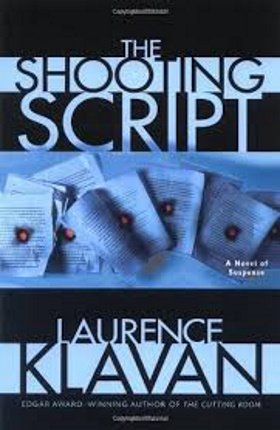Then we drove in silence for a while.
“We need some laughs,” he said, suddenly.
“What do you mean?”
“In Day the Clown. Dying is easy. Comedy is hard. Maybe Jerry forgot that.”
Politely, I didn’t respond.
“What do you think of Romy?” he asked.
“Romy?”
“Schneider. We’ll give Thor a g.f., add a little leg.”
G.f. meant girlfriend; I knew that much from Variety. I paused, then proceeded, carefully. “She’s dead, isn’t she? Romy Schneider?”
Troy pursed his lips a second, then recovered. “She was a great kid.”
We rode in a more respectful silence now. Troy’s comments made the whole notion of the remake seem more dubious than ever. I thought this was a good time to broach a key subject. I tried to sound casual.
“So where’s the money coming from?”
“Say again?”
“The funding. You know. For the remake.”
Troy was disturbingly silent now. I sensed tension, even hostility, beneath his bonhomie.
“Well … I’ll know when I get the flick.”
Now I saw another side to him, the hard-nosed negotiator who had once made decent films. But what were we haggling over?
“And when do you think that will be?” I moved the big tape now, hiding it beneath my leg. “You got a timeline?”
I was talking Troy’s lingo now—dated tough-guy—and he clearly liked the interplay.
“Cards on the table?” he asked.
“Sure.”
“I called Jerry about it, but he hasn’t called back.”
Why was I not surprised? He hadn’t called Howie; he never talked to anyone about it.
“So I’m depending on you.”
He glanced at me, pointedly. I nodded, slowly. What he meant, of course, was: No matter what he’d promised Marthe, he had no intention of making a movie with Thor as the star.
Troy owed dangerous people lots of money. The coveted Clown would be worth lots. And I was going to help him get it.
I felt a bit faint. Here was another nauseating motive for finding the film. The impulse to go back to New York was never greater. Yet I could still feel Marthe’s fingers curling, luxuriously, around my neck. I bet she knew nothing of Troy’s real intentions.
“Now you tell me …” Troy made the final turn, heading back to his house.
“Yes?”
“What’s that tape you got there?”
I shouldn’t have been surprised he’d seen it. The thing was the size of a goiter, and it was underneath my thigh. I decided to imitate the attitude of my fearless young friend, Kent.
“It’s Clown,” I said. “Of course.”
“Funny,” he said, and took the bait.
I was off the hook. For now.
I couldn’t help noticing other acquisitions in the back of Troy’s car. Next to the socks were enough bandages to wrap a mummy. And a container of what looked like syringes. For whom? I didn’t think Troy had backslid into drugs. But I didn’t ask.
—
“Nothing happened,” I told Marthe that night. “I’m fine.”
I had thought long and hard about telling her the truth. We were, after all, moving upon her yoga mat again. But instead I steeled myself against trusting her. I had placed the tape deep in my luggage and stashed it beneath my bed.
“But so many nicks and bruises,” she said, deliciously examining every one.
“I just fell down. They say nobody walks in L.A. And now I’ve found out why.”

























